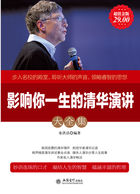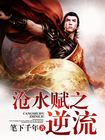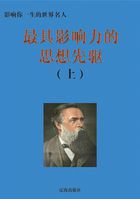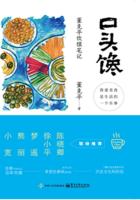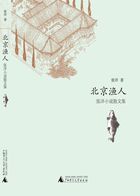According to Kant there are three Ideas of the pure Reason --the Soul,the World,and God.Nobody really doubts the existence of the world;but doubts as to the existence of the soul or of God are possible and have been met by professedly demonstrative arguments.The 'dogmatists'whom Kant criticised had,as they thought,proved the existence of a monad,an 'indiscerptible'unit called the soul;and of a Supreme Being,or 'Ens Realissimum,'who is taken to be in some sense absolute and simple.Kant holds these arguments to be essentially a misapplication of logical method.It is the function of the reason to unify our knowledge.The ideal would be reached if all knowledge could be regarded as a system of deductions from a single principle.This,in reasoning about the soul,produces a 'paralogism.'All our thoughts and faculties are bound together into a unity which is consistent with multiplicity.We interpret this unjustifiably as implying the existence of an absolutely simple unit.We hypostatise the unity and regard it as a thing when,in truth,it represents a complex system of reciprocal relations.The arguments upon the supposed proofs of the existence of a supreme Being,though they are expanded and considered in many different forms,reach a similar conclusion.
We are perfectly right in unifying as much as possible our whole knowledge of the world,but though we may continue the process indefinitely,we can never logically arrive at the knowledge of a single Being existing independently as the foundation of all other being.In this sense,Kant calls the idea 'regulative.'It corresponds to the legitimate process of thought;we must unify,but no reasoning can reveal an entity lying beyond all experience.We are thus led to 'irresistible illusions,'from which,however,we can escape,though only 'by the severest and most subtle criticism.'Kant compares this to the illusion produced by a mirror,which makes objects really in front appear to be behind it,or to the apparent increase of the moon's size when near the horizon.Still,it is impossible,as he emphatically says,that reason should be itself undeserving of confidence.It is only from its misuse in an inappropriate sphere,or,in other words,from its attempt to transcend experience,that the fallacy arises.(81)It is needless to ask how this argument can be reconciled with the theism which Kant accepts.Hamilton's criticism of Cousin is essentially a statement of the converse argument.
Schelling and Cousin had taken up Kant's challenge,not by inferring the simple being from the complex of experiences,but by professing to show how multiplicity might be evolved out of absolute simplicity.This feat,as Hamilton held,and as Mill of course held with him,could only be accomplished by a palpable juggle.Clearly you cannot count,if you are restricted to the use of an absolute 'one.'The germ from which an organic system is developed cannot be itself absolutely simple.Knowledge can only be made out of rules;and a simple 'is'gives no rule.
Hamilton tries to express the principle implied in such instances in the proper pomp of metaphysical language.Cousin starts by admitting that knowledge supposes 'plurality,'that is,an object and a subject.Now,says Hamilton,(82)the 'absolute'must be identified with the subject or with the object,or with the 'indifferency of both'(whatever that may be).On the first or second hypothesis,the absolute is not,as it ought to be,a unit,for it is one of a pair;on the other hypothesis,you suppose that consciousness does not imply plurality.A man,let us say in humbler language,if he thinks,must think about something.If so,we start from a man and a something.But suppose him to think about himself.Then there must be something to say about himself;and he will have nothing to say if he is absolutely simple.That seems to be true enough.Every proposition asserts a relation of some kind,and a proposition cannot be got at all if no relation be given.This,therefore,is one meaning of the 'relativity'of thought.'To think is the condition';that is,you cannot affirm or deny unless you deny or affirm something.If you try then to get to the absolute by stripping off all relations,you really get to zero.We think only by the attribution of certain qualities,and the negation of these qualities and of this attribution is so far a negation of thinking at all.Kant's arguments duly carried out prove 'the unconditioned,'says Hamilton,to be a mere 'fasciculus of negations.'(83)Clearly,we reply,if the unconditioned is reached by unsaying all that we have said.A plain person is,indeed,chiefly astonished that such arguments should be required.Schelling's system,says Hamilton himself,is only fit for 'Laputa on the Empire,'(84)but Schelling at least invented a supernatural faculty to perceive an 'incogitable'hypothesis.
Cousin's hypothesis,which tried to omit this faculty,is worse,for it is self-contradictory.(85)The spectacle of three of the most distinguished men in Germany,France,and England joining in this game,and even of Hamilton winning a 'European reputation'by declaring that we cannot believe two contradictory propositions at once,or make something out of nothing,is not edifying to a believer in philosophy.
V.ANTINOMIES

